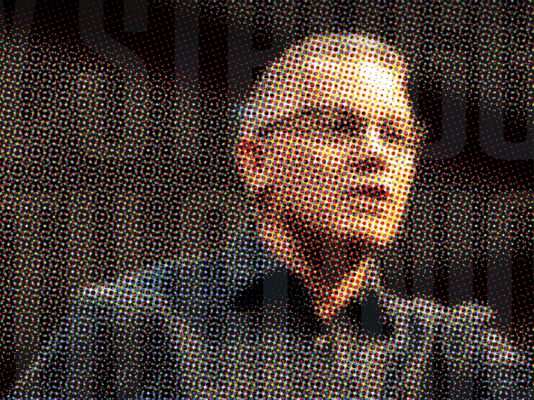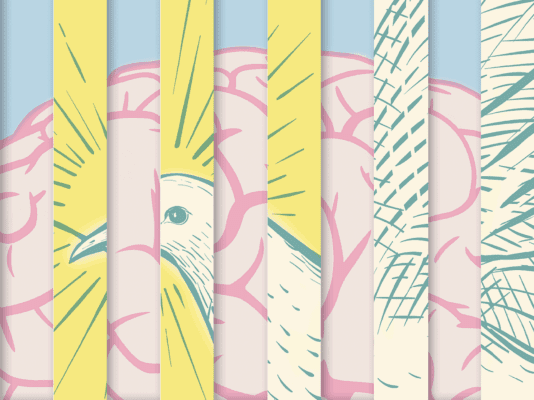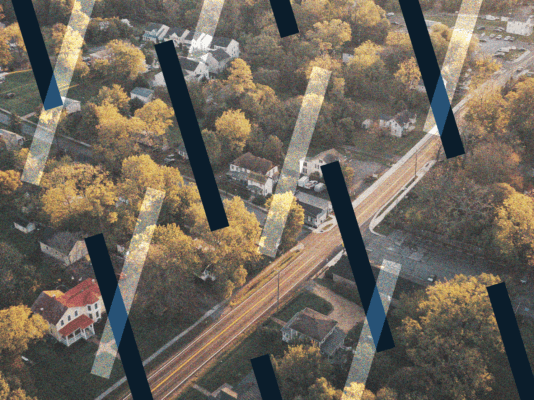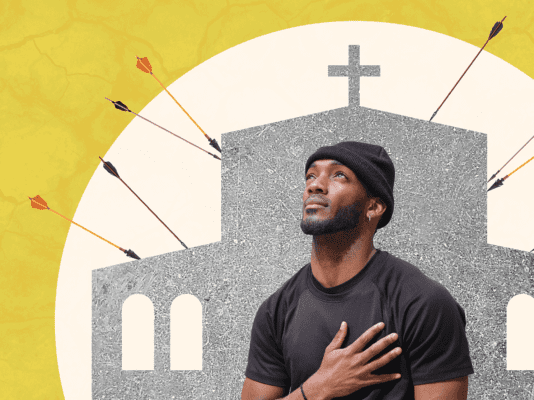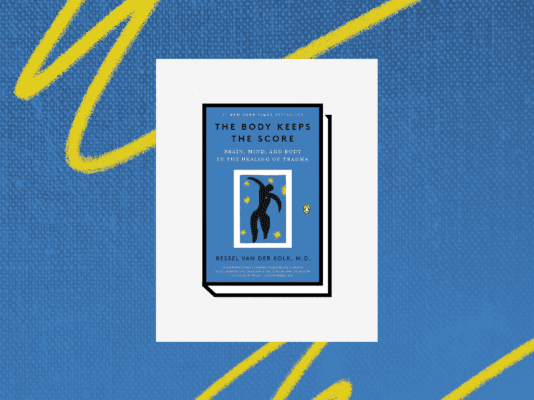I re-watched the 1998 film Prince of Egypt with my kids recently. The film is a beautiful and moving dramatization of the Exodus, taking plenty of license to fill in narrative details where the Bible is silent. I appreciate the drama because it can help us see aspects of the story that we might miss otherwise. In this case, I was struck that when Pharaoh finally relents and lets Israel go, God won a total victory and set Israel freebut at the moment of Pharaohs surrender, the people of Israel were still in Egypt. God didnt send a whirlwind to whisk them effortlessly away. They had to get up and walk out of Egypt.
This would have been a grueling and dangerous hike. From Luxor and Thebes, the ancient capitals of Egypt, to the nearest point on the Red Sea is some 130 miles. Im an avid hiker and in good shape: if I walked all day with a light pack and no delays, I might cover a little more than 20 milesand I would be exhausted and have a hard time getting up to do the same thing the next day. With laden pack animals and children in tow, youd be lucky to cover 5 to 7 miles per day, and it would just get harder day after day.
Which means that after God set them free, the Israelites faced three or four weeks of grueling, dangerous hiking in the wilderness. Three or four weeks of hard, repetitive labor; of hunger, thirst, heat stroke, sand, and probably snakes and scorpions. Hour after hour of the simplest and most menial act: walking. For weeks on end. No wonder the Israelites grumbled about being led out of Egypt to die in the wilderness.
It must have seemed odd: God himself had just accomplished a mind-blowing act of stupendous power in overthrowing the power of Egypt. He unmade creation around the Egyptians, taking away light, slaying the animals, devouring the plants, sending hail and blood and boils, and ultimately striking down the first-born sons. Couldnt he do something about the heat? Or shorten the trip a little?
There is a curiosity at the heart of the Christian Gospel. God does it all, yet leaves a little something for us to do. We celebrate that God accomplished our salvation through Christ on the crossbut he left us here on earth still wrestling with the curse and bound to die. Our justification is complete. Our sanctification is just begun.
Ive developed the remarkable ability to complain about both aspects of this truth. Some days I want God to do more. You elected, called, regenerated, justified, and adopted me: can you please glorify me already? Why dont you come again and get this tiresome life over with? Im ready for my rapture now, Mr. DeMille.
Other days, I wish God left more for me to do. I dislike passivity and love achievement. When I reflect that God has completely accomplished my salvation, I feel a little deflated. Salvation is a glorious act. Could I get in on a little of that glory? The wonderful distinctive truth of Christianity is that our good works contribute nothing to our eternal fate. Id have made a great Hindu because its so much more flattering to believe in karma.
The first complaint is the sin of apathy and fatalism. The second is legalism and works-righteousness. The first gives up and imagines that the Christian life is about sitting around waiting for miracles. The second tries to perform them. The first expects too little of ourselves; the second, too much. The first is what we feel in the midst of trials; the second, in the midst of blessings. We are most tempted to apathy when we feel weak; legalism looks reasonable when we feel strong.
Gods act of redemption allows us neither indulgence and demands that we constantly keep watch against both. The Christian life involves ceaseless effort and striving. We are to work out your salvation with fear and trembling, and recognize that faith apart from works is dead, that we were literally created for good works, (Philippians 2:12, James 2:26, Ephesians 2:9). But the Christian life also involves surrender, dependence, and passivity. We should also be humble enough to recognize that it is God who works in you, both to will and to work for his good pleasure, that our good works were prepared beforehand by God that we should walk in them, and that we should be still, and know that I am God, (Philippians 2:13, Ephesians 2:10, Psalm 46:10).
I dont know why God saved us and then left us here, why there is the interim of human history between Gods redemptive acts; why he freed Israel and immediately led them on what must have felt like a death march. The only Biblically reliable answer is that this is for Gods glory and the good of his people. And we know that in our suffering we are like Christ, we learn perseverance, and we grow in our love for others.
I might also speculate that God has graciously allowed us the dignity of participating in one small step towards our sanctification and glorification because this is part of what it means to be a human made in his image. God is active, so we should be likewise: God made us persons, not puppets, and wants to save us with personhood intact (or restored), which requires a harder and longer order of salvation in which our lives, our choices, and our history matter for our sanctification. To put it another way, more Christologically, just as we image the creator by working and we image the king by having dominion, so too perhaps we image the savior by suffering–and suffering requires a life and a history and things to suffer for.
And finally, perhaps God permits us this small act of participation because in doing so we come to appreciate more fully our total incapacity to contribute to our justification. In our stories we all come to moments of despair and weakness. Israel on the road to the Red Sea and beyond more than once grumbled that they werent going to make it. In those moments we get a glimpse of how hard it can get, and thus how much God spares us from all the rest of the time. By the time the Israelites finished their hike, exhausted and weary, Im sure they knew more truly than ever that they never would have had the strength to defeat Pharaoh and win their freedom themselves. Much more so for us when we see how our own sin weakens us and works against the sanctification God has for us to work out. In those moments we recognize the true extent of our dependence on God in every aspect of our lives.
Like so many great truths of Christianitythe Trinity, the dual nature of Christthe doctrine of Gods salvation demands that we acknowledge the unresolved tension and trust that Gods word is true. We are called to be neither wholly passive nor entirely active in our salvation. In his redemptive act, God is neither manipulating a puppet nor rewarding achievement. He is saving a people.





